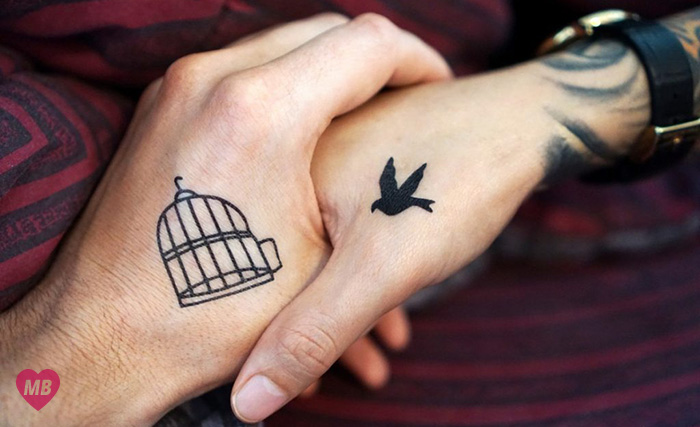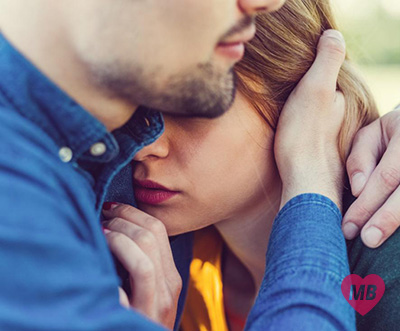Codependent Relationships: Signs and Treatment
When it is difficult for a person to accept themselves, they are looking for someone who can do it instead of them, providing them with a lot of love, happiness, spiritual harmony that would fill their inner void. Thus, it may turn out that you give the heart to the first person you meet, who smiles at you, is kind and gentle, who helps you feel your value and forget about the shadows of the past for a short while. Alas, such love is fickle because your happiness begins to depend not on you but on the other person, their mood, actions, and decisions. It’s as if you get on an emotional hook, becoming puppets in the hands of fate. Anyway, blind self-sacrifice and total control over a partner are bad recipes for happiness. Everyone has different ideas about an ideal relationship. Someone is sure that, in a union, one should give, and another one should just accept. One should be strong and responsible, while another one should be weak and helpless. Only under such conditions, people will complement each other, and the relationship will be harmonious. However, in fact, such partners can be called codependent. And it’s not romantic at all.

Why the Problem of Codependent Relationships Is Underrated?
They say a lot about co-dependency now, and while someone abuses this concept, treating any manifestation of strong uncontrollable emotions in a relationship as co-dependency, others continue to believe that preoccupation with feelings for another person is either great love, or passion, or obsession at worst. At all times, works of art were created thanks to a strong passion for someone or the sublimation of love suffering. And people don’t rush to call the world masterpieces “the result of co-dependency,” or to define a classic plot as encouragement of co-dependent behavior. This is one of the reasons why codependent relationships are often perceived as something normal and passionate even in the online dating world. Of course, there is no need to stigmatize everything with this word: bright passion, conflicting relationships, one-sided love, long-distance relationships, non-standard distribution of funds in the family and everything else that does not match the common ideas about quiet family happiness. Each of these phenomena has equal chances to be and not to be a part of a codependent relationship.
Well, at first glance, the idea of co-dependence sounds quite peaceful and friendly. You are a couple, and you are interdependent. The fact is that interdependence and co-dependence are two different things. In the case of co-dependence or painful attachment to a partner, any relationship can easily develop into a toxic one. And now let’s talk about the definition of a codependent relationship to sort things out and decide what to do next.
Codependent Relationships Definition
The ideas of “co-dependency” or “co-dependent relationship” vary since some believe that this is about a relationship with a person who has an addiction, such as alcohol, while others think that it is about relationships where interpersonal boundaries are violated.
There is still no single definition of co-dependency. So, while many use this term to describe the behavior of a person whose partner has an alcoholic, drug or gambling addiction, and in this case, they mean dysfunctional relationships in which one person maintains the painful state of another. This concept is often defined much more broadly as a pathological state of emotional, social, financial, or even physical dependence on a person. Two adults can be co-dependent. Usually, they are partners, friends or parents with grown-up children. Small kids are not affected by co-dependency since they depend on the parents by default. However, dysfunctional relationships with parents can lead to future problems with a man or a woman for marriage in the future.
 Being codependent in relationships, people get attached to others in the attempts to cope with basic anxiety, they become helpless in front of others and tend to use people as the only source of integrity, value, and well-being.
Being codependent in relationships, people get attached to others in the attempts to cope with basic anxiety, they become helpless in front of others and tend to use people as the only source of integrity, value, and well-being.
Codependent Romantic Relationships
You may admit that we all are dependent on our loved ones to some extent. And it’s undoubtedly, but in the case of co-dependency, everything is more complicated. In a relationship without such a problem, adults, metaphorically speaking, go through life holding hands, and if one suddenly stumbles, another one will support them. In a codependent relationship, people, on the contrary, seem to shift the center of gravity to a partner. However, firstly, you won’t get far in such a state, and secondly, when one stumbles, then both fall.
Codependent relationships suggest that people are connected so much in different areas of life that they cannot act autonomously. If their relationship deteriorates or collapses, other areas of life instantly suffer, starting with professional realization and to physical health or material well-being. Codependent people perceive their partners as a source for meeting basic needs, starting with material well-being to a sense of security, and besides, this source is called upon to heal their emotional wounds.
When one tries to define codependent relationships, they should understand that first, it is an extremely emotional and mental immersion in the life of a partner, a mixture of roles, functions, and emotions. Codependent people are very easily “infected” with the mood of loved ones and immediately take personally all the manifestations of their feelings. When it’s about narcissistic and codependent relationships, the train of thought turns out like this: a partner who has just come home from work is annoyed not because they are hungry, tired or had a bad day, but because they are not happy to see me. They are sad because I said something wrong. Anger, displeasure, sadness, apathy instantly become common for codependent people as if their emotional systems are not separated from their loved ones but are two connected vessels, and feelings freely “flow” from one person to another.
5 Signs of Codependent Relationships
Now you know that codependent relationships are about an unhealthy and inadequate need for a partner, in such cases, fear and strong necessity prevail over love and happiness. Nobody says that you shouldn’t feel the need for your partner’s support or your desire to be confident in the uniqueness of your relationships is inadequate. However, when it’s about codependent relationships, you may suffer from a permanent desire to get your loved one’s approval about any little thing. In some couples, both partners have inadequately strong ties to each other, while in some other couples, only one partner is dependent, and another one enjoys their special position and ability to control everything. If there is suspicion of being in codependent relationships, then you should better check the signs of codependent relationships, listed below.
1. You cannot make decisions on your own
If you cannot make any decision without involving your partner in this process, for example, you ask them all the time whether you can hang out with friends or go on a business trip, then it means your relationships are not that healthy. Nobody says that you should ignore your beloved one’s opinion or don’t care about what they think about this or that thing, but if you need exactly their approval to do that, then you have problems. Partners should be able to find a compromise, but they shouldn’t be afraid to decide on their own.
2. You don’t want to sort things out
If you agree with your beloved one on every little thing, starting with the way you should look and to dishes you will have for lunch, there are high chances you are a perfect match. Nonetheless, if you don’t have your own opinion that will be different from the opinion of the partner, your relationships can be saturated with codependency. You either ignore or silence yourself, trying to satisfy every need of your beloved partner. Mature adults who have started a healthy partnership, aren’t afraid to say what they are thinking about even if their point of view is far away from the partner’s vision. Codependent people are scared to argue since it can undermine their relationships.
3. You put your partner’s interests first
People who were raised in such conditions where it was necessary to meet the requirements of other members of the family, forgetting about their own desires, are prone to codependency more than others. They are constantly dealing with other people's issues and have a need to show their care for praise or recognition. So, if you are ready to turn into a shoulder to cry on, become a safety ring and cover your closest people with care and attention even if they don’t ask you about that, then chances are you are a codependent person.
4. You compromise your principles
Every person has their personal boundaries and a set of principles that create a solid foundation of their personality and comfort zone. If you analyze your behavior and realize that you are constantly compromising your principles for the sake of your beloved one, then it’s a problem. For example, you have decided to not do something for any case, but as soon as your partner asks about that, you immediately forget about your initial decision. You convince yourself that everything is fine, and you do that out of love. However, deep inside, you feel frustration and dissatisfaction, which you hide from the partner.
5. You suffer from jealousy
People who are inclined to stay in codependent relationships have low self-esteem. This is a root cause of their fears that everyone in the social circle of their partners can turn out to be an enemy, a potential threat to their relationships. Usually, they do their best to hide dissatisfaction with the partner’s behavior to not provoke quarrels, but the level of their jealousy grows with every single day. They believe that a partner can easily replace them with someone better, more young/beautiful/successful, etc. Over time, the suppression of real emotions leads to passive-aggressive behavior.
Breaking Codependent Relationships: The Guide for Men
Regardless of your role in a codependent relationship, you don’t take care of yourself. This idea may not seem new, but its essence is still distinguishable from the standard rule, "If you cannot take care of yourself, then how can you take care of someone else?" In fact, you are trying to get away from hyper-custody through this statement. If you realize that you are in a pathological relationship scenario, even changing your behavior and beginning to define your boundaries, you will encounter manipulation by the partner. It can be either aggression, blackmail (“I will commit suicide if you leave”), or remorse, guilt (“I will change, I will do everything for us to be together”).  Can codependent relationships be fixed? You can change yourself, but you cannot change another person. Therefore, the best way to have a healthy relationship is to get out of the old and start new. So, it is time for breaking codependent relationships.
Can codependent relationships be fixed? You can change yourself, but you cannot change another person. Therefore, the best way to have a healthy relationship is to get out of the old and start new. So, it is time for breaking codependent relationships.
1. Distance yourself from the partner
The first step on the way to the codependent relationship recovery is to realize the situation and accept it without a sense of shame and guilt, taking this fact for granted. The second step is a conscious change in the tactics and strategies of your own life. You should do your best to distance yourself from the partner, this item is the most valuable and significant one. Without moving away from the partner, you simply can’t understand the boundaries of your personality. Distance does not mean limiting contact right away or an aggressive emotional attitude. It is about freeing yourself from being involved in the life of another. You should do that with love instead of anger or resentment. You are not responsible for the decisions and behavior of another adult person. Give both of you freedom, the right to be yourselves, to live your own lives and be responsible for it.
2. Live your life
The easiest way to go crazy on your own is to live someone else's life, and to become happy is enough to live your own. After distancing from your partner, you will stay alone with yourself. This condition can be initially perceived as very gloomy. After all, you don’t know what it is like to live for yourself. You may experience fear, loneliness, pain, misunderstanding of what to do next. In fact, you will face a big task – to learn to take care of yourself and love yourself. Taking care of yourself consists of taking responsibility for your life: for what you eat, where you sleep, what you feel and think. Give yourself everything you need. Constantly ask yourself, "What do I need to take care of myself?" If it’s difficult for you to do that on your own, you should better look for a good psychologist.
3. Learn to accept
Acceptance is one of the goals of many areas of psychology. We often fantasize, reduce the significance of negative events, or, conversely, exaggerate minor troubles, causing ourselves mental suffering. Acceptance of reality as it is will bring relaxation and calmness. You should give up all attempts to fight it. And only after that, changes are possible: behavior, actions, thoughts, and feelings. The co-dependent should learn to accept the fact that they cannot control everything. You should accept your disappointment about the hopelessness of your dreams about any aspect of life. Accept the futility of your actions. It can be difficult and painful. However, by doing this, you will find yourself and inner freedom.
Start Everything from Scratch
If codependent relationships last for a long time, they turn into a comfort zone, even if they are more like hell. You should understand that both of you are receiving emotional benefits from this hell. Then it will become clear that the way out of this relationship is in your hands. The help of a psychotherapist may be required because when you suffer from co-dependency, it is scary to break up, your guilt is especially strong, and all other people seem not that interesting. The main thing is to understand that nothing will change if you leave everything as it is. The choice is only yours: to continue to be dependent on your partner or to finally become free.
